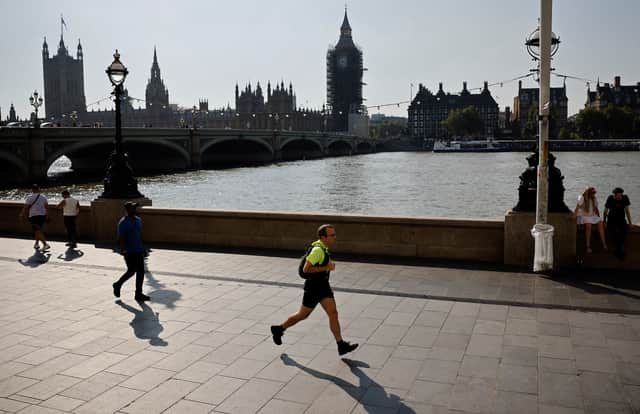Exercise: being too active may not help you live longer - so what does?


Being too active may not necessarily prolong life after researchers in Finland carried out a long-term study that examined the exercise habits and biological age of thousands of participants.
Academics from the University of Jyvaskyla found that, in theory, people who exercise more may only live longer due to following a healthy diet, getting plenty of sleep and being social as opposed to how much time they spend in the gym.
Advertisement
Hide AdAdvertisement
Hide AdThey found that working out fanatically could fuel the ageing process by nearly two years results suggest. Their research saw over 11,000 pairs of twins aged 18 to 50 examined from the years 1975-2020. Each set completed questionnaires on their physical activity levels which categorised them as sedentary (13.4%), moderately active (36.7%), active (38.7%) or highly active (11.2%). The team also looked at their blood samples to see how they were biologically ageing, by looking at any alterations in their DNA, reflecting factors that influence lifespan, genes, eating habits and exercise.
Those who were moderately active, active or highly active were 15-23% less likely to die during the 45-year study than those who were sedentary. But after looking at BMI, smoking and alcohol use, data revealed a 7% drop in deaths among the active group compared to the sedentary group, with 'no additional benefits provided by higher levels' of exercise, which was labelled as 'remarkable'.
Those on the extreme ends - who did the least exercise and who did the most - had the oldest biological age, but the most active were 1.3 years older biologically than those who were moderately active and 1.8 years older than those who were active.
The results were printed in medRxiv and need to be peer-reviewed but the study won a sports medicine prize in Finland this week.
Advertisement
Hide AdAdvertisement
Hide AdDr George Savva, a senior research scientist at the Norwich-based food and health research centre the Quadram Institute noted that BMI can be influenced by exercise levels. However, the researchers adjusted their findings to take account of BMI, which means they may have missed some of the effects of physical activity.
He said: "If the benefits of exercise are mediated through promoting weight loss, then this study may not detect it in the final analysis."
Comment Guidelines
National World encourages reader discussion on our stories. User feedback, insights and back-and-forth exchanges add a rich layer of context to reporting. Please review our Community Guidelines before commenting.
